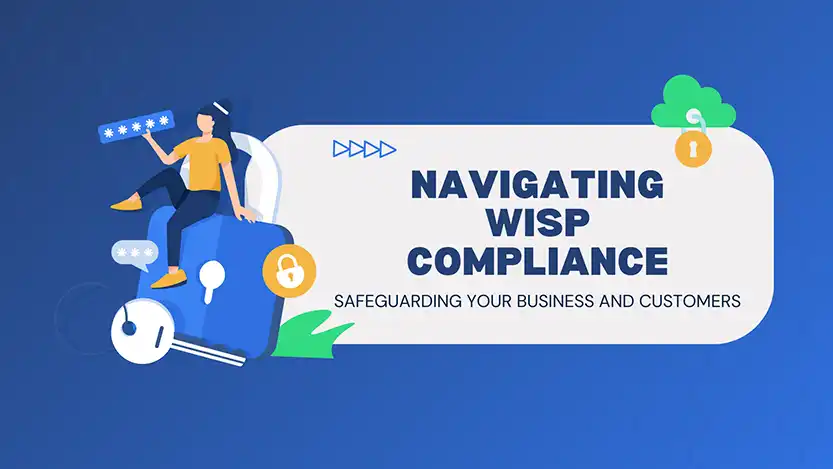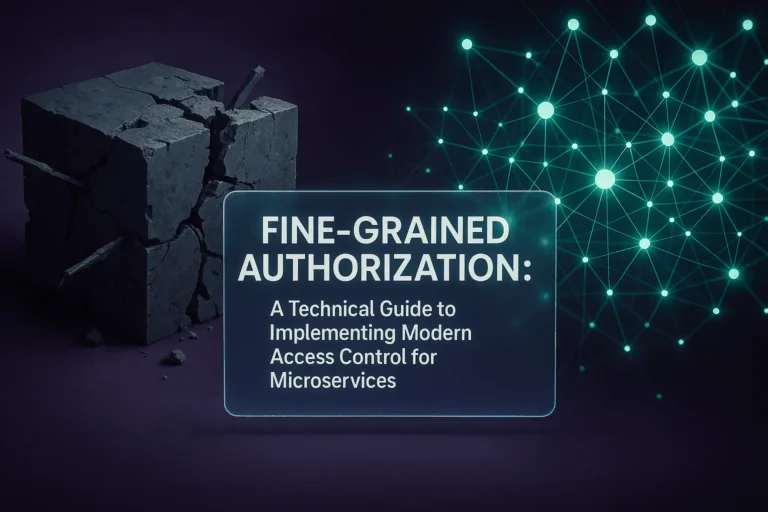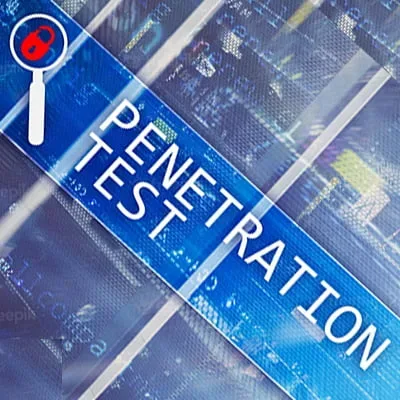WISP compliance has quickly become a major focus for CPA firms. CPAs handle a significant amount of sensitive financial information, which makes them a prime target for cyberattacks. To mitigate risks, the Federal Trade Commission (FTC) and Internal Revenue Service (IRS) have laid out clear guidelines to protect client data through a Written Information Security Program (WISP). Unfortunately, many firms overlook the intricacies of these regulations, potentially exposing themselves to fines or breaches.
If you’re uncertain about your firm’s compliance, now is the time to act. We’ll walk you through the essentials of WISP requirements for CPA firms and show you why an expert review from Grab The Axe can make all the difference in safeguarding your data.
WISP Compliance: The FTC Safeguards Rule
Under the FTC’s Safeguards Rule, CPA firms must implement a WISP that includes administrative, technical, and physical safeguards to protect customer information. This rule applies to any financial institution, including CPA firms, engaged in activities such as tax preparation and bookkeeping.
Key Requirements:
-
- Designate a Security Coordinator – Someone within the firm must be tasked with overseeing the security program.
-
- Identify and Assess Risks – Firms must identify potential risks to client information in every part of their operation.
-
- Develop Safeguards – Based on the risk assessment, firms must create policies to address vulnerabilities, from encryption to multi-factor authentication (MFA).
-
- Oversee Service Providers – Any third-party providers handling sensitive data must also meet security requirements.
-
- Regularly Test and Monitor – A WISP isn’t a set-it-and-forget-it solution. Regular testing and adjustments are mandatory as risks evolve.
CPA firms must ensure that their WISP not only exists but is actively monitored, updated, and aligned with evolving technologies and threats. This proactive approach minimizes risk and maintains client trust.
IRS Publication 4557 and Data Security for CPAs
The IRS has been equally clear in its stance on data security for tax professionals. Publication 4557 outlines essential practices that CPA firms must adopt to protect taxpayer information.
IRS Requirements:
-
- Security Risk Assessment: Similar to the FTC, the IRS requires firms to evaluate risks to the information they handle.
-
- Data Backup: Regularly backing up data ensures that information can be recovered in the event of a breach or disaster.
-
- Strong Passwords and Encryption: Weak passwords are a major vulnerability. The IRS mandates strong password policies and encryption for data storage.
-
- Multi-Factor Authentication (MFA): This adds an extra layer of protection beyond just passwords, reducing unauthorized access.
-
- Incident Response Plan: Every firm needs a plan for how to handle a breach. Who will be notified? What actions will be taken to mitigate damage? These questions should be answered in your WISP.
Firms that fail to adhere to IRS and FTC guidelines not only face hefty fines but also risk eroding the trust that forms the foundation of their client relationships.
Common Pitfalls and Why Your WISP Needs a Review
Creating a WISP isn’t just about checking a compliance box. Many CPA firms rush the process or fail to update their security measures regularly. Some common issues include:
-
- Using outdated technology: Failing to keep systems updated makes it easier for hackers to exploit known vulnerabilities.
-
- Neglecting third-party risk: If your service providers aren’t as secure as you are, your firm is still exposed.
-
- Lack of ongoing monitoring: Threats change, and so should your response. A WISP that’s not regularly tested and adapted might as well not exist.
That’s where Grab The Axe comes in. Our team specializes in data security and compliance, ensuring that your WISP is not just a document on a shelf but a living part of your firm’s operation. We’ll help you assess risks, update your policies, and stay ahead of threats before they become breaches.
The Consequences of Non-Compliance
The FTC and IRS have made it clear: non-compliance is not an option. Firms that fail to meet WISP requirements face significant penalties, including:
-
- Hefty fines: The FTC can impose substantial financial penalties for failing to protect consumer information.
-
- Loss of business: Clients want to know their data is safe. A breach can erode trust and lead to lost business.
-
- Potential lawsuits: If client data is compromised due to negligence, your firm could face lawsuits that damage both your reputation and bottom line.
In an industry where trust is paramount, CPA firms cannot afford to cut corners on data security. With the right WISP in place, you can assure clients that their information is secure, protect your firm from legal risks, and maintain compliance with federal regulations.
How Grab The Axe Can Help
Whether your firm needs a complete overhaul of its WISP or just a second set of eyes to review your current plan, Grab The Axe is here to help. With expertise in cybersecurity and a deep understanding of the specific requirements laid out by the FTC and IRS, we can ensure that your firm’s data security is airtight.
Here’s what we offer:
-
- Comprehensive WISP audits to identify gaps in your current security measures.
-
- Custom WISP drafting services tailored to the specific needs of your firm.
-
- Ongoing monitoring and support to ensure your policies remain compliant as technology and threats evolve.
Don’t wait until it’s too late. Contact Grab The Axe today to schedule your WISP review and secure your firm’s future.
For CPA firms serious about compliance and protecting their clients’ sensitive data, a well-maintained WISP is non-negotiable. At Grab The Axe, we specialize in creating and optimizing WISP documentation to ensure full compliance with both FTC and IRS guidelines. Contact us today to schedule a consultation and take the first step toward protecting your firm’s future.
References:
Federal Trade Commission (FTC). (2021). Complying with the Safeguards Rule: A Guide for Businesses. Federal Trade Commission. https://www.ftc.gov/business-guidance/resources/complying-safeguards-rule-guide-businesses
Internal Revenue Service (IRS). (2019). Publication 4557: Safeguarding Taxpayer Data. Internal Revenue Service. https://www.irs.gov/pub/irs-pdf/p4557.pdf
Federal Trade Commission (FTC). (2023). Protecting Personal Information: A Guide for Business. Federal Trade Commission. https://www.ftc.gov/tips-advice/business-center/guidance/protecting-personal-information-guide-business
Ponemon Institute. (2020). Cost of a Data Breach Report 2020. IBM Security. https://www.ibm.com/security/data-breach
National Institute of Standards and Technology (NIST). (2022). Cybersecurity Framework. U.S. Department of Commerce. https://www.nist.gov/cyberframework
Internal Revenue Service (IRS). (2021). Publication 1345: Handbook for Authorized IRS e-file Providers of Individual Income Tax Returns. Internal Revenue Service. https://www.irs.gov/pub/irs-pdf/p1345.pdf
To Learn More:
Cybersecurity 2024: Why Your Business Might Be the Next Target (and How to Prevent It)
Why Your Business Needs an Integrated Physical Security Approach in the Digital Age
Top Cybersecurity Trends of 2024: Prepare Your Business for the Future






This Post Has One Comment
Pingback: Uncovering Vulnerabilities: Why Your Business Needs a Physical Security Risk Assessment - Grab The Axe
Comments are closed.